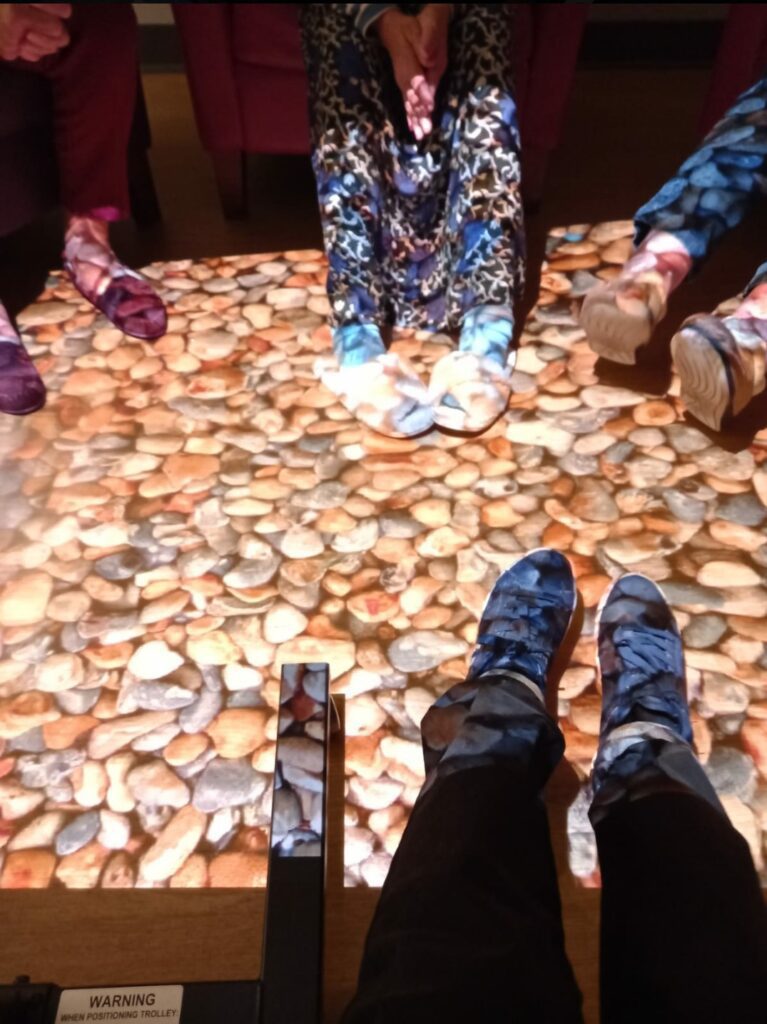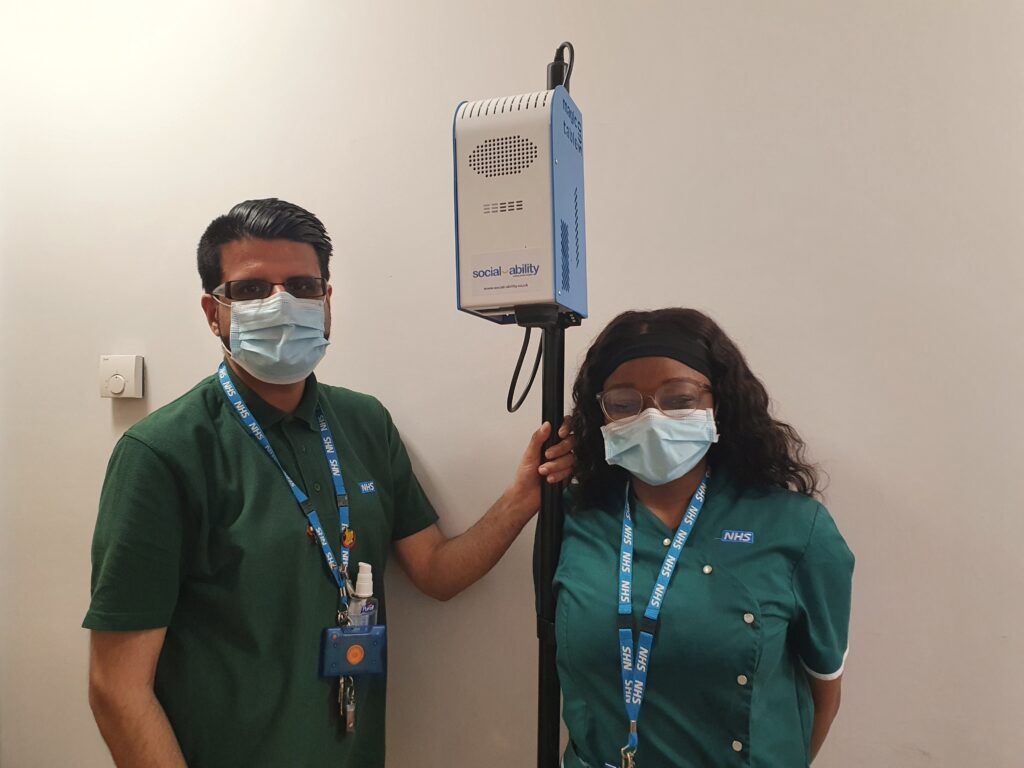Today we are delighted to add another addition to our case study series. We spoke with Saeed Majeed, an occupational therapy assistant, at Juniper Centre, Birmingham. We wanted to learn about how the Happiness Programme was being used with their patients, and how this was affecting their practices.
Juniper Centre are long time subscribers of the Happiness Programme and have been using it effectively with their patients since they began their subscription. Saeed begins by speaking about how frequently they use the magic table 360 in their activity sessions:
“We use the magic table 360 a lot in Rosemary Ward. In fact, we use it up to three or four times a day with various patients. We love using it during 1:1 sessions or as a more sensory based activity.”
He continues:
“We often find that the magic table 360 works incredibly well with late-stage dementia patients. We can sometimes find it challenging to engage and interact with the later stage patients when trialling other activities, but we’ve found that the magic table 360 has really helped us reach those patients in a much more effective way. It’s great for encouraging further engagement outside of magic table 360 sessions too. We find that after using it, patients are much more likely to stay alert when partaking in other activities.”
Saeed mentions how useful the magic table 360 can be during the dementia journey:
“Patients who are much earlier in their diagnosis also really enjoy the magic table 360 sessions. We find that our patients really enjoy the sensory experiences in Pond Fishing, especially when they are interacting with the water. Balloon Pop and Bubble Burst are also very popular on the ward. The patients enjoy making the tapping motions that are encouraged by these games. For our less mobile patients, we find that the Radio games encourage movement, even if it’s just dancing in their seats.”
“We use the magic table 360 a lot in Rosemary Ward. In fact, we use it up to three or four times a day with various patients. We love using it during 1:1 sessions or as a more sensory based activity.”
The Happiness Programme is helping Juniper Centre break down barriers and provide meaningful activity to patients that find verbal communication difficult. Saeed talks about how, as a hospital in such a multi-cultural community, they often have patients who speak foreign languages, or find it challenging to communicate with English:
“We often have patients that speak other languages on the ward, and we find that the language barrier can sometimes be a challenge. We started to introduce the interactive light projector to these patients and found that it had an immediate effect. They became much more engaged because they could understand how to participate in the activities without the need for verbal communication. They can get stuck straight into the games without needing much guidance, which is great.”
Saeed talks about how they are using the magic table 360 as a distraction technique for calming agitated patients:
“One of our main uses for the interactive projector is as a distraction tool. When patients become stressed or agitated, we will introduce the interactive projector. This has been incredibly effective when calming patients down and creates and much more positive atmosphere for everyone.”
Saeed continues, mentioning a patient who finds it difficult to transition between different activities:
“We have one particular patient who can become quite stressed when moving between different activities. So, we decided to begin using the interactive projector between their activity sessions to see if it made any difference. The process became so much easier for both the patient and the staff. We found that using the interactive projector between activities eased the transition and allowed the patient to move smoothly into the next activity.”


The Happiness Programme is a first-of-its-kind initiative helping to change the lives of people living with cognitive challenges. We use interactive light technology to provide meaningful activities for residents and patients in care homes and care settings. For more detail on what the Happiness Programme is and how it’s helping care venues across the UK, visit our getting started page.
Alternatively, jump to our dementia, learning disability and NHS pages for more specific detail on how it’s helping care homes like Barchester and HC-One as well as hospitals and local authorities such as St George’s Hospital, London and Westminster and South Kensington Council.
For anything else, you can contact us here too.

Copyright © 2021 Social-ability. All Rights Reserved.